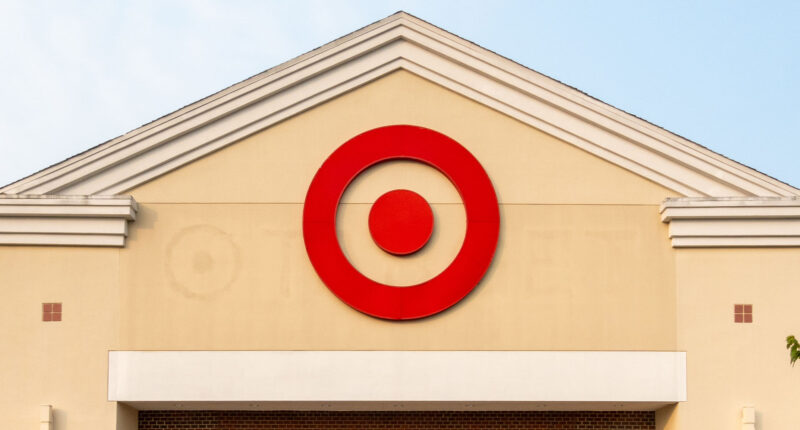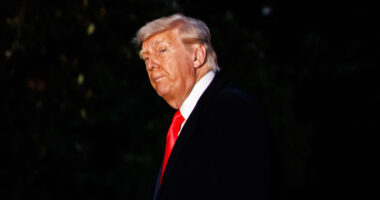TARGET has been hit with a 40-day boycott by customers fuming over its decision in response to President Trump’s DEI demands.
Church leaders have called for the boycott to begin in a few weeks as they call for selective spending in response to the policy change.
Target has made a recent decision to discontinue their DEI initiatives, which were established to advance inclusive practices, and will opt to focus solely on merit-based hiring procedures.
The retailer’s DEI practices also helped to ensure that the store would carry more products from Black and minority-owned businesses.
Faith leaders launched a boycott of the retail giant during a gathering at the Metropolitan African Methodist Episcopal Church in Washington, D.C., in response to this development on February 17.
“We’ve got to tell corporate America that there’s a consequence for turning their back on diversity,” Bishop Reginald T. Jackson told USA Today.
“So let us send the message that if corporate America can’t stand with us, we’re not going to stand with corporate America.”
The 40-day boycott is set to begin on March 3, which marks the start of Lent.
“If our diversity is not good, our money isn’t good,” Jackson, bishop of the AME Church’s Second District, told the crowd on Monday.
Jackson partnered with civil rights lawyer Barbara Williams-Skinner to help organize the boycott.
“We’re here today because what we’re seeing for 30 days is a foretaste of four years,” Skinner told The Hill.
“This is already telling us that if we don’t stop it at 30 days, we won’t have a country. We won’t have a democracy.”
Explaining the reversal of DEI efforts, Target’s Chief Community Impact and Equity Officer, Kiera Fernandez, expressed plans to leverage insights gained from past experiences to revise the company’s diversity protocols.
“For more than 20 years, Target has fueled our business by building teams with diverse perspectives and experiences, creating inclusive work and guest environments that welcome all, and developing strategies that represent the U.S. consumers we serve,” Fernandez told Retail Dive.
“We’ve also deepened our understanding of how building a sense of belonging for every member of our team, guests and communities can help drive our business and strengthen our culture.”
“As a retailer that serves millions of consumers every day, we understand the importance of staying in step with the evolving external landscape, now and in the future,” Fernandez concluded.
Target’s announcement of its DEI rollbacks follows an executive order instructing federal agencies to stop “illegal preferences and discrimination,” including the following of DEI practices.
“There’s no law that says they have to get rid of (diversity efforts),” Gloria J. Browne-Marshall, a professor of Constitutional Law at John Jay College of Criminal Justice in New York, told USA Today.
“They’re doing this because it’s easier for them to get along with this administration. They’re making a choice and in making that choice they decided that they would get rid of the DEI programs.
“The consumer can make a choice as well and they can decide not to buy from the corporation.”
Other major companies such as Walmart and Amazon have followed in Target’s footsteps by eliminating DEI practices.
Target didn’t respond to repeated requests for comment about the boycott.
Another big chain, Costco, has been fighting against the move.
The wholesale club’s shareholders rejected a proposal to evaluate any “risks” posed by its DEI practices, despite Trump’s order.
Its directors also praised diverse employees and suppliers for fostering “creativity and innovation in merchandise and services.”
Which firms have dumped DEI policies after Donald Trump’s executive order?
Big consumer brands have ditched DEI programs including:
- Walmart
- McDonald’s
- John Deere
- Target
- Meta Platforms
- Ford
- Brown-Forman – the parent company of Jack Daniels
- Tractor Supply
- PBS
Goldman Sachs has retreated from DEI, by dropping a requirement that forced some clients to include women and members of minority groups on their board of directors.
Google has rescinded a goal in 2020 to increase representation of underrepresented groups among the company’s leadership team by 30% within five years.
Amazon said it was halting some of its DEI programs, although it did not specify which ones.
Lowe’s said the company was “reviewing” its DEI programs.
Harley-Davidson said it does not have hiring quotas and would no longer have supplier diversity spending goals

















